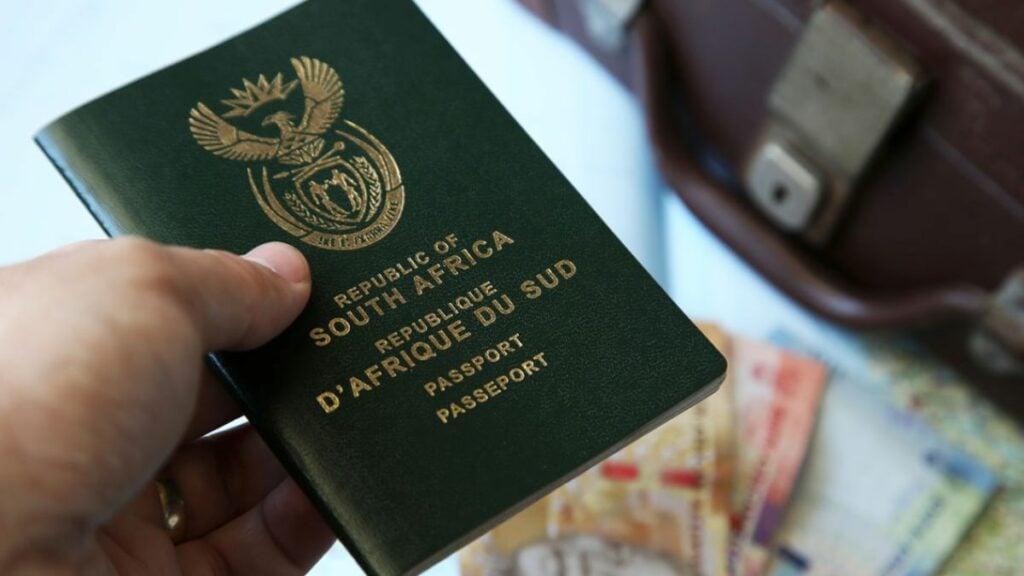Africa-Press – South-Africa. Although many South Africans may be looking to emigrate to improve their lives, there are many financial considerations which can complicate the process.
Investec’s head of UK transactional banking, Michael Goemans, explained that South Africans generally emigrate for their and their family’s future prosperity.
However, he said this is not always the case, and the reasons generally depend on the life stage the person is in.
“If you’re young, you might want to try new things, live in a different environment or culture, travel, and see more of the world. If you’re older, more settled with a partner and family, the considerations are clearly different,” he said.
Goemans said he usually divides considerations into three buckets: emotional, like leaving friends and family and missing life events; financial; and practical or operational.
“Moving overseas, especially with a family, is a big step, and there’s a lot to think about because daily life will be different,” he said.
He pointed out that many South Africans tend to underestimate how readily available and affordable support is in their home country.
For example, childcare, whether through a nanny, cleaners, or family help, is more accessible and affordable in South Africa than overseas.
The same is true for business networks. Emigrants trying to succeed commercially overseas may have to start from scratch or may not have the same depth of network as they do in South Africa.
“That makes it harder to do business or win commercially. So, depending on your work, it’s something to give real thought to,” Goemans said.
There are also many financial and tax implications to consider before moving to a different country. “Whether you like it or not, your tax situation will get more complicated,” he said.
Typically, someone living in South Africa pays tax here based on global earnings and gains. If they leave and don’t want to be taxed globally by SARS, they have to formally change their tax residence.
Once done, only their residual income in South Africa will be taxed, and they will pay tax in their new country or based on where they earn.
SARS will also treat the change as a “deemed disposal” of all their global investments, which might trigger capital gains tax.
Investments and insurance
The process will also be more complex for South Africans who have accumulated assets like property, retirement funds, and investments.
“South Africa still has exchange controls on how much money can be taken out of the country. Changing your tax residence affects those rules.”
Retirement, preservation and pension funds allow South Africans to cash out when they leave their employment, although there may be tax. “That money can then be taken with you, with SARS’ approval.”
Retirement annuities used to be locked in until age 55. But now, South Africans can access these funds if they have changed their tax residence and been out of the country for three years, although they may still be subject to tax.
“Property is different,” Goemans said. “You’d need to sell it, possibly pay capital gains tax, and then externalise the proceeds.” Since these are usually people’s biggest assets, he urged potential emigrants to plan carefully before moving.
When it comes to life insurance, the decision on what to do depends on whether the person wants to keep their policies when they leave the country.
“If you’re moving temporarily, you might want to. Even if you’re moving permanently, you might still want to keep them, especially if you’re older and may struggle to get cover elsewhere.”
“Most South African life insurers will let you keep cover if you’re moving to a Western country, but check with your insurer.”
The downside of keeping a policy is that the cover is in rands, and premiums must still be paid from South Africa. “If, on the other hand, you do decide you want to cancel, you must also consider the trade-offs.”
For emigrants, it is worth considering whether they will get equivalent cover overseas and whether they may one day return to South Africa.
“It’s not a decision to rush. Speak to your adviser and insurer, and think through your options carefully,” he urged. They could also help navigate potential tax implications associated with life insurance.
Since most modern life policies are “pure risk” policies, there’s no investment or surrender value. This means that there shouldn’t be material tax implications.
“However, if you hold life-wrapped investments, like endowment-style policies or offshore endowments, those are different. They’re not pure risk policies, and tax treatment will vary,” he said.
For More News And Analysis About South-Africa Follow Africa-Press






